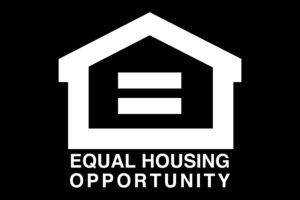The Federal Housing Administration (FHA) loan is one of the most popular mortgage options among first-time homebuyers in the United States. The FHA loan program is backed by the federal government and allows borrowers to secure a mortgage with a low down payment, lenient credit requirements, and more flexible income and debt-to-income (DTI) ratios compared to conventional loans.
The FHA loan program was established in 1934 and was created to stimulate the housing market during the Great Depression. The program was designed to make homeownership more accessible and affordable to low to moderate-income families who could not qualify for conventional loans due to stringent credit and income requirements.
An FHA loan is a mortgage that is insured by the FHA, which means that if the borrower defaults on the loan, the FHA will reimburse the lender. The FHA is not a direct lender, but instead, it provides insurance to lenders who provide FHA loans. This insurance makes lenders more willing to lend to borrowers with less-than-perfect credit or lower down payment amounts, as they are protected against the risk of default.
Credit requirements
To qualify for an FHA loan, borrowers must meet certain requirements. The minimum credit score required for an FHA loan is 580. However, borrowers with a credit score of between 500 and 579 can still qualify for an FHA loan, but they will need to make a larger down payment of 10% instead of the standard 3.5%. Borrowers with a credit score of 640 or higher may be eligible for more favorable interest rates.
Employment and income
Another requirement for an FHA loan is that the borrower must have a stable income and employment history. Borrowers must also have a DTI ratio of 55% or less, which means that their monthly debt payments (including the new mortgage payment) should not exceed 55% of their gross monthly income. FHA loans also have more lenient income and employment requirements compared to conventional loans. Borrowers who are self-employed or have irregular income can still qualify for an FHA loan as long as they have a two-year history of self-employment, and the lender verifies their income. The lender will also calculate the borrower’s average monthly income by using their tax returns from the past two years.
Down Payment
One of the most significant advantages of an FHA loan is the low down payment requirement. Borrowers can finance up to 96.5% of the home’s purchase price, with only 3.5% down payment required. The down payment can be sourced from the borrower’s savings, gift funds, or a grant from a state or local agency. This low down payment requirement makes homeownership more accessible for low-income and first-time homebuyers who may not have the funds to put down a larger down payment.
Finally, FHA loans offer more flexibility when it comes to the type of property that can be purchased. FHA loans can be used to purchase a single-family home, a multi-family home (up to four units), condominiums, and manufactured homes.
Potential Drawbacks
Despite the many benefits of an FHA loan, there are some drawbacks to consider. One significant disadvantage is the mortgage insurance premium (MIP) that borrowers must pay. MIP is required for all FHA loans and is usually tacked on to the borrower’s monthly mortgage payment. The MIP is split into two parts, an upfront premium paid at closing, and an annual premium paid monthly. The upfront premium is typically 1.75% of the total loan amount, and the annual premium ranges from 0.45% to 1.05%.
Another downside to consider is the loan limits on FHA loans. The loan amount for an FHA loan is determined by the county’s median home price. These loan limits can be a disadvantage for borrowers who want to purchase a more expensive home.
FHA loans can be a great option for those looking to buy a home with a lower down payment and credit score. With the government backing the loan, lenders may be more willing to lend to borrowers who may not qualify for a conventional loan. However, it’s important to weigh the pros and cons of an FHA loan, including the mortgage insurance premium. Additionally, while the credit score and income requirements may be lower, it’s important to have a stable financial situation before taking on a mortgage. As with any financial decision, it’s crucial to do your research and carefully consider your options before making a final decision.



